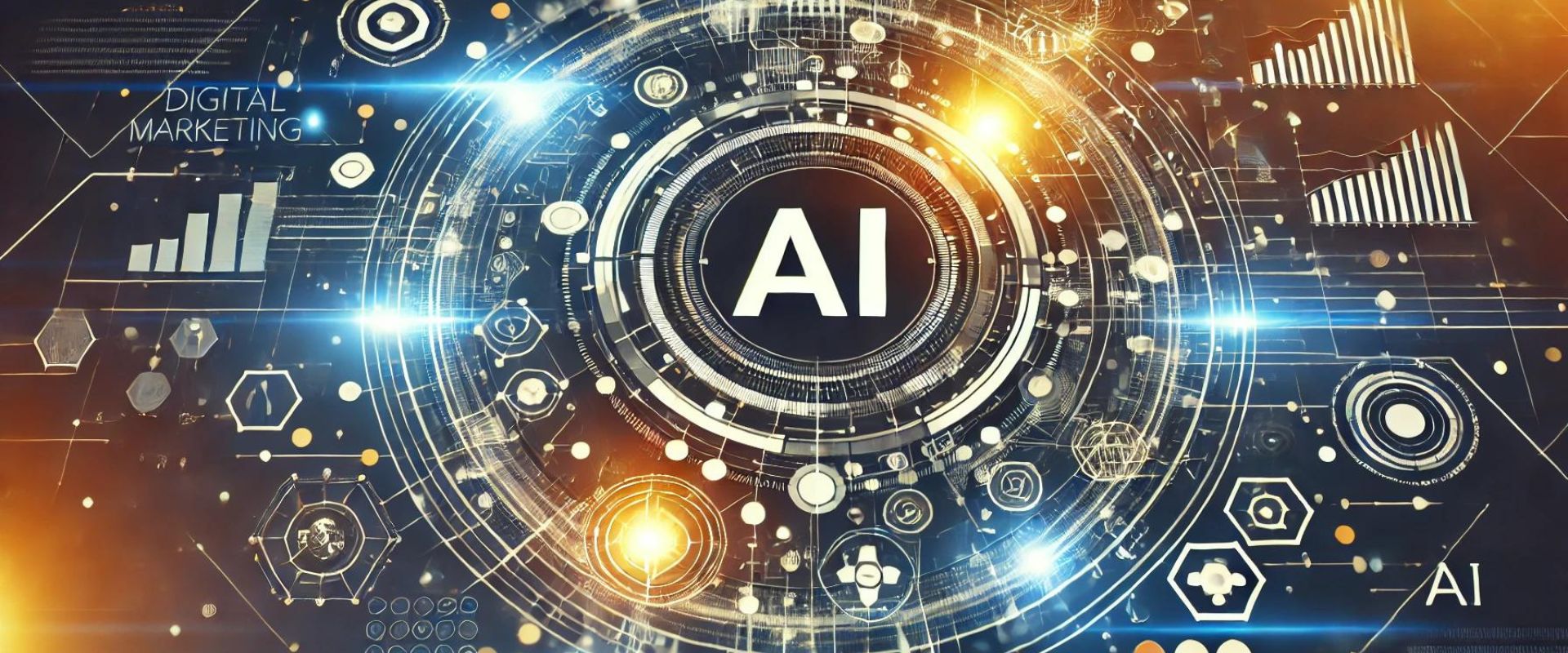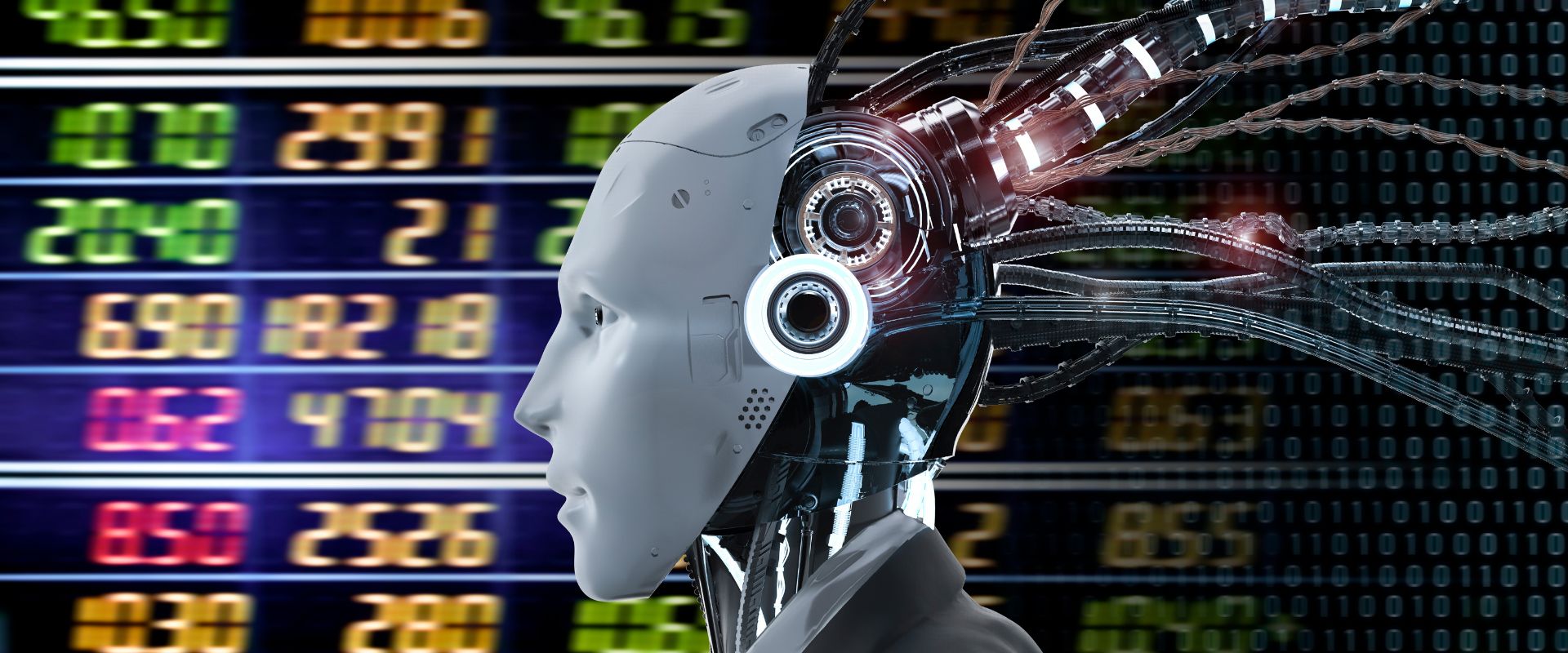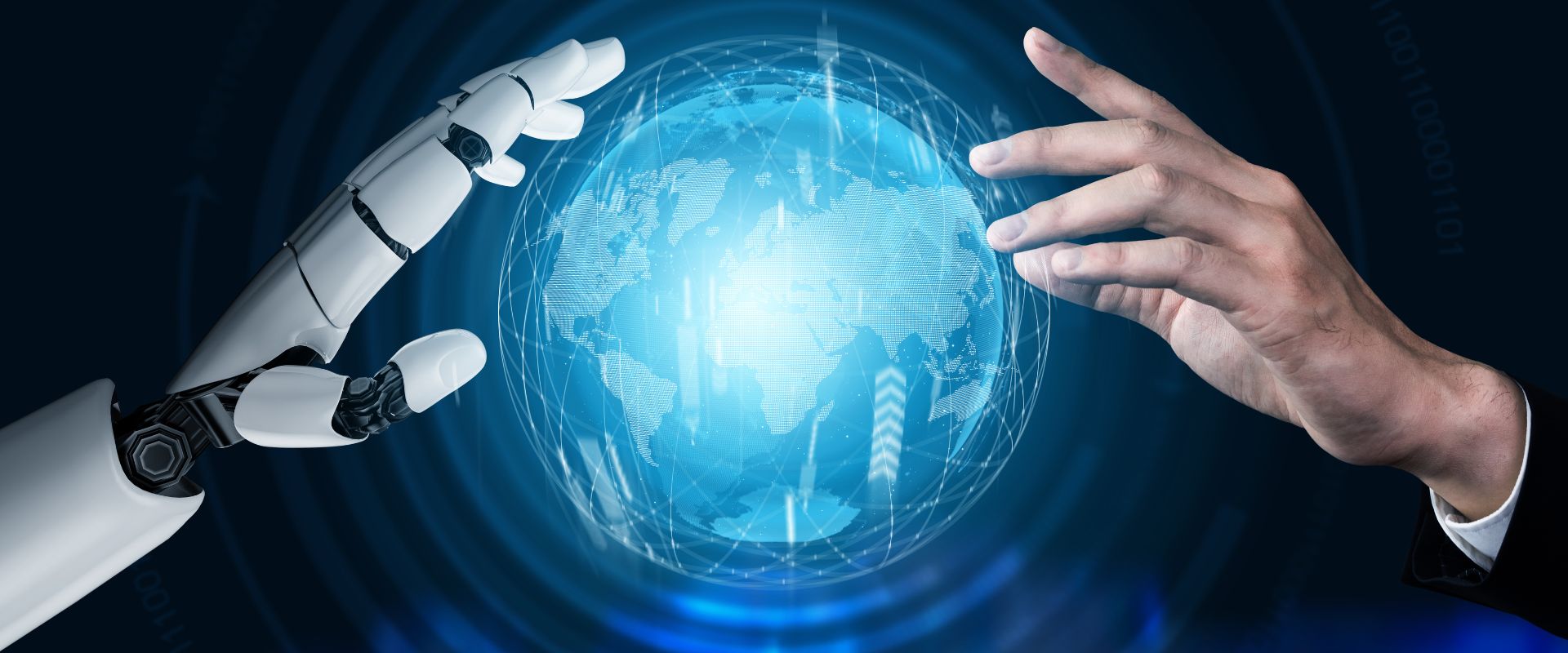Will Digital Marketing Be Replaced by AI?
Exploring the Future of a Symbiotic Relationship
Introduction

The sun’s setting, casting that warm, golden light that makes everything look a bit more magical. As I sit here, it strikes me just how much digital marketing has evolved – and how quickly AI is becoming the game-changer we never saw coming. But here’s the deal: AI isn’t about to replace us marketers. It’s more like that extra set of tools you didn’t know you needed, the ones that make your job smoother, faster, and yes, a bit more exciting.
Think about it: We’ve all had those moments where we’re knee-deep in data, trying to pull out insights that will transform our next campaign. It’s tough work, and it takes time. But what if there was a way to sift through that mountain of information at lightning speed? That’s where AI steps in – not as a replacement, but as the co-pilot who handles the heavy lifting while you steer the ship.
In this blog, we’re going to explore the growing role of AI in digital marketing, the benefits it brings to the table, and why it’s not about doing our job for us, but about helping us do it better. Whether it’s automating the repetitive tasks or uncovering insights that were previously buried, AI is here to elevate our game, not take it over. So let’s dive into how this tech is transforming our industry, and why the future of digital marketing isn’t AI versus humans, but AI working hand-in-hand with us.
The Role of AI in Digital Marketing

AI’s role in digital marketing is a lot like having an extra pair of hands that never tire and can process information faster than we ever could. It’s a tool – a powerful one – that helps us automate the repetitive, data-heavy tasks that can bog down our day. As Medium says these tasks, “they can be time-consuming and prone to errors when performed manually.” Whether it’s segmenting audiences, personalizing content, or optimizing ad spend, AI can handle these tasks with precision and efficiency, freeing up our time for what really matters: creativity and strategy.
But let’s be clear: AI isn’t here to replace us. Sure, it can analyze data and even suggest campaign tweaks based on past performance, but it’s not going to brainstorm the next big idea or connect with your audience on a human level. Creativity, empathy, and strategic thinking – these are the areas where AI falls short and where we, as marketers, truly shine. AI can give us the insights, but it’s up to us to weave those into compelling stories that resonate with people.
In other words, think of AI as your sidekick, not your successor. It’s there to make your job easier, to handle the heavy lifting so you can focus on the aspects of marketing that require a human touch. It’s about enhancing your capabilities, not replacing them. So while AI can help you run more efficient campaigns, it’s your unique perspective and creativity that will ultimately make those campaigns successful.
Pros of AI in Digital Marketing

Efficiency and Automation:
One of the biggest advantages AI brings to the table is its ability to handle massive data sets at lightning speed. In the past, sifting through data, analyzing trends, and crafting personalized marketing strategies was a time-consuming process. With AI, this can now be done in a fraction of the time. AI automates repetitive tasks like email marketing, social media scheduling, and even ad placement, allowing marketers to focus on higher-level strategy and creativity. The result? Faster decision-making, more personalized campaigns, and, ultimately, better ROI.
Enhanced Data Analysis:
AI’s data-crunching capabilities don’t just stop at efficiency. AI algorithms can detect patterns and trends in data that might be impossible for humans to see. As Luzmo says, “As your data grows, data exploration gets harder and more time-consuming. AI data analysis uses different artificial intelligence techniques to get valuable insights from large amounts of data.” By analyzing customer behavior, market conditions, and other variables, AI helps marketers target their audiences more effectively and create content that truly resonates. Whether it’s predicting which products will be in demand next season or understanding what drives customer engagement, AI provides insights that lead to more precise and impactful marketing efforts.
24/7 Availability:
In today’s fast-paced digital landscape, being responsive isn’t just a nice-to-have – it’s essential. AI-powered tools can manage customer interactions and campaigns around the clock, ensuring that your brand is always engaged with your audience, no matter the time or day. Whether it’s chatbots providing instant customer support or automated systems optimizing ads in real-time, AI keeps your marketing efforts running smoothly, even when you’re off the clock.
Innovation Catalyst:
AI isn’t just about doing things faster and better – it’s also a powerful catalyst for innovation. By providing fresh insights and challenging conventional strategies, AI encourages marketers to think outside the box and experiment with new approaches. Whether it’s uncovering a new market segment or finding a unique way to tell your brand’s story, AI helps push the boundaries of what’s possible in digital marketing, leading to breakthroughs that set your brand apart.
In short, AI is transforming digital marketing by enhancing what we do best and automating what we don’t need to do manually. It’s not just a tool for efficiency – it’s a gateway to smarter, more innovative marketing strategies.
The Limitations of AI in Digital Marketing

While AI offers incredible benefits, it’s not without its limitations, especially when it comes to the more nuanced aspects of digital marketing.
Lack of Creativity and Emotional Intelligence:
AI might be a whiz at analyzing data and optimizing processes, but when it comes to creativity and emotional depth, it falls short. Crafting compelling narratives, developing a brand’s voice, or creating content that resonates on a deep emotional level are tasks that require human intuition and experience. “While machines are capable of mimicking patterns and producing work that is technically correct, they lack creative thinking and the ability to imagine something that has never existed before” (AdPulp). AI can generate text or suggest creative directions based on data, but it lacks the ability to truly understand and connect with human emotions, which are essential in building a brand that people love.
Dependence on Quality Data:
AI is only as good as the data it’s fed. If the data is incomplete, biased, or of poor quality, the insights AI generates will be flawed. This can lead to misguided strategies, ineffective targeting, and even damage to your brand’s reputation. For AI to be effective, it needs accurate, high-quality data – and even then, it’s crucial to approach AI-driven insights with a critical eye.
Ethical and Privacy Concerns:
AI-driven personalization can walk a fine line between being helpful and being invasive. Collecting and analyzing personal data to tailor marketing efforts raises significant ethical and privacy concerns. How much data is too much? Where do we draw the line between personalization and intrusion? As AI continues to evolve, marketers must navigate these ethical dilemmas carefully, ensuring that their use of AI respects privacy and complies with regulations like GDPR and CCPA.
Need for Human Oversight:
Even the most sophisticated AI systems require human oversight. AI can process data and make recommendations, but it’s up to humans to interpret these insights, make strategic decisions, and adjust campaigns based on a nuanced understanding of the market and the audience. Without human judgment, AI-driven marketing can become mechanical, missing the subtleties and context that make marketing truly effective. So, while AI is a powerful tool that can enhance digital marketing, it’s not a replacement for human creativity, judgment, and ethical responsibility. It’s essential to use AI as a complement to human skills, ensuring that the technology is guided by thoughtful, informed decision-making.
AI as an Extension of the Digital Marketer’s Skill Set

AI is not just a tool; it’s an extension of the digital marketer’s skill set, amplifying what we do best while freeing us from the drudgery of repetitive tasks.
Human-AI Collaboration:
In today’s fast-paced marketing world, collaboration between humans and AI is becoming the norm. AI’s ability to analyze vast amounts of data quickly gives marketers the insights they need to refine their strategies and focus on creative ideation. For example, AI can identify patterns in customer behavior that might suggest new trends or unmet needs, which marketers can then use as a springboard for innovative campaigns. This synergy between AI and human intuition allows for more precise targeting and creative strategies that resonate more deeply with audiences.
Empowering Marketers:
By automating the mundane, AI empowers marketers to devote more energy to what they do best: crafting compelling narratives, developing brand strategies, and engaging with audiences on a human level. Instead of getting bogged down in data analysis or repetitive tasks like A/B testing and keyword research, marketers can focus on high-level strategy and creative execution. “At a high level, some of the most effective ways to leverage AI and ML are to automate processes, personalize experiences, and analyze data” (Uncommonlogic). This shift not only increases productivity but also enhances the overall quality of marketing campaigns.
Case Studies/Examples:
Consider the collaboration between AI and marketers at companies like Netflix and Spotify. These brands use AI to analyze user data and deliver personalized content recommendations. However, the human touch comes into play when crafting the overall user experience and brand messaging, ensuring that the AI-driven recommendations align with the brand’s voice and resonate with the audience.
Another example is Coca-Cola’s use of AI in its marketing campaigns. The company leverages AI to analyze social media conversations and identify emerging trends. Marketers then use these insights to create timely, relevant content that connects with consumers on a deeper level, illustrating how AI and human creativity can work hand in hand to produce outstanding results.
In essence, AI enhances the capabilities of digital marketers, allowing them to focus on the strategic and creative aspects of their work. It’s a partnership where AI handles the heavy lifting, and marketers apply their expertise to drive impactful campaigns.
Future of Digital Marketing: A Symbiotic Relationship Between AI and Marketers

The future of digital marketing is one where AI and human marketers work hand in hand, each bringing unique strengths to the table. “AI enhances digital marketing by providing crucial insights, personalizing customer interactions, and automating repetitive tasks, paving the way for more strategic, creative endeavors” (LinkedIn).
AI as a Partner:
Looking ahead, AI will increasingly become an indispensable partner in the marketing process. Its role will evolve beyond just handling data and automating tasks. AI will offer deeper insights, anticipate market shifts, and even suggest creative directions based on emerging trends. However, it will always rely on human marketers to interpret these insights and turn them into compelling, emotionally resonant campaigns. As AI takes on more of the heavy lifting, marketers will have more freedom to focus on the big picture, driving innovation and connecting with audiences in meaningful ways.
Ongoing Learning and Adaptation:
To stay competitive in this evolving landscape, marketers must commit to continuous learning and adaptation. AI technologies are advancing rapidly, and those who embrace these tools and integrate them into their workflows will have a significant edge. This isn’t just about learning how to use new software; it’s about understanding how AI can enhance your strategic thinking, how it can be leveraged for more effective storytelling, and how to maintain the human touch that makes marketing truly effective. The marketers who thrive in the future will be those who view AI not as a threat, but as a valuable collaborator that enhances their capabilities.
In the future of digital marketing, success will belong to those who can balance the analytical power of AI with the creativity and empathy that only humans can provide. By embracing this symbiotic relationship, marketers will be able to push the boundaries of what’s possible, creating campaigns that are both data-driven and deeply human.
Conclusion

As we’ve explored, AI is not here to replace digital marketing professionals but to empower them. By handling the heavy lifting of data analysis and automating routine tasks, AI allows marketers to focus on what they do best—crafting creative strategies, building relationships, and driving innovation. The real power of AI lies in its ability to complement human skills, helping us achieve more effective and innovative results than ever before.
So, as you continue to refine your digital marketing strategies, I encourage you to explore AI tools that can enhance your efforts. Whether it’s automating repetitive tasks or uncovering new insights, AI can be a game-changer for your campaigns. And when choosing partners or teams to work with, make sure they’re not just aware of AI’s potential, but actively using it to stay ahead of the curve. By embracing this powerful collaboration between human creativity and AI-driven efficiency, you’ll be well-positioned to lead in the ever-evolving world of digital marketing.
Check out our frequently asked questions
And remember that if you do not get the answer to your question you can contact us through our contact form.
Which industries does Big Life Marketing serve?
We work with businesses in technology, e-commerce, finance, real estate, and health. More importantly, we work best with companies that are ready to scale. Whether you're an expert-based brand or a product-driven business, our systems are built to align with your business model and your buying cycle. We adapt to the market, not the other way around.
How does Big Life Marketing develop marketing strategies?
It starts with a clear understanding of your business. We look at your goals, your current numbers, and how your audience behaves. We use AI to identify trends and opportunities, but the real strategy comes from our team translating that data into actionable campaigns. Everything we build is based on what will move the business forward, not what looks good in a slide deck.
What sets Big Life Marketing apart from other agencies?
We bring together strong analytics and creative execution in one place. Many agencies are good at one or the other. We are good at both. Our team combines deep marketing experience with current tools and platforms to deliver campaigns that perform. We do not guess or follow generic playbooks. We build systems that are customized and results-driven.
How can Big Life Marketing enhance my brand's online presence?
We start by understanding where your audience is and how they make decisions. From there, we build the right mix of content, media, and messaging across the most effective channels. This could include SEO, paid search, social media, YouTube, or a mix of all. The goal is not just to be visible. It is to be relevant and persuasive when it matters.
What results can I expect from working with Big Life Marketing?
You can expect clarity, consistency, and measurable outcomes. That includes stronger engagement, higher-quality leads, and better conversion rates. For clients who are ready to scale, we also focus on performance metrics like return on ad spend, cost per acquisition, and customer lifetime value. Every decision we make is tied to your growth goals.
How does Big Life Marketing align strategies with my business goals?
We begin by setting clear priorities. That could be increasing sales, improving lead quality, building a stronger brand, or launching a new offer. Once the goal is defined, we build the strategy to support it. Throughout the engagement, we use data to stay on track and adjust when needed. You will always know what we are doing, why we are doing it, and how it is performing.
Check out our frequently asked questions
And remember that if you do not get the answer to your question you can contact us through our contact form.
